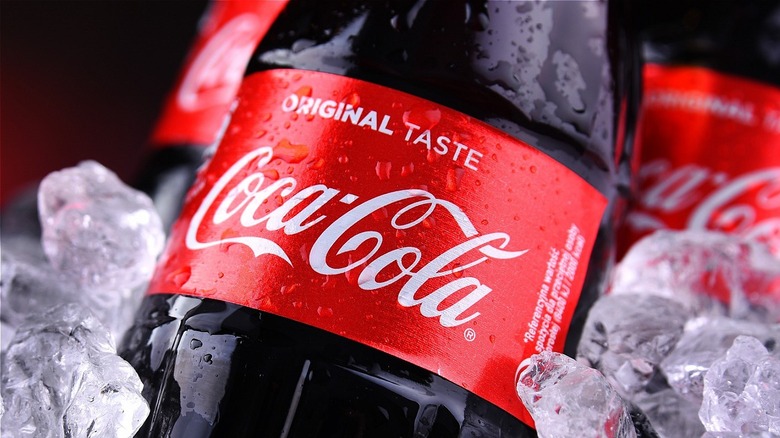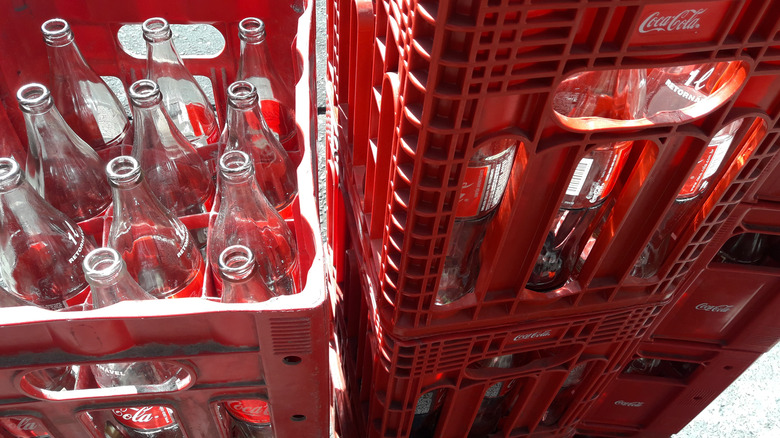Refillable Coca-Cola Bottles Could Soon Be Everywhere. Here's Why
Reusable cups and water bottles, and even straws and utensils, have been part of popular culture for several years now. But the idea of reusable beverage containers isn't really anything new. Nowadays, durable plastic cups and metal water bottles are most of the norm, but historically, glass bottles have been the standard form of reusable bottles. And they were the only type of bottle in circulation before the advent of single-use plastic and disposable metal cans (via Container Recycling Institute.)
In 1960, when single-use containers were about to take off, around 94% of soda was sold in refillable containers, but today, less than 1% is sold that way, according to the Container Recycling Institute. It's no secret that single-use plastic is an environmental nightmare, causing widespread pollution. Coca-Cola and Pepsi have taken heat in the past for being some of the biggest perpetrators, and Waste Management World names them as the top two biggest plastic polluters. Coca-Cola famously used to be sold in exclusively glass bottles that could often be returned for a deposit, but plastic is now the norm, with Daily News reporting that Coca-Cola says only about 11% of its packaging is glass as of 2010.
Coca-Cola pledges to increase refillable containers
With growing concerns surrounding global pollution and mounting issues from plastic waste, many companies are attempting to limit their contribution to the mountains of single-use plastics sitting in landfills. Coca-Cola recently announced that by 2030, 25% of its drinks will be sold in refillable containers, a program that has already seen success in Brazil, according to Fast Company. These bottles can be used around 20 to 40 times, reports Market Watch, curbing the 3 million tons of single-use plastic produced by Coca-Cola each year.
The reusable bottles are part of the Every Bottle Back initiative, which seeks to reduce the manufacturing of new plastic, invest in more infrastructure recycling programs, increase public awareness of recycling, and focus on the use of bottles made of recycled plastic according to the Coca-Cola website. Coca-Cola produces about 200,000 pounds of single-use plastic packaging per minute, much of which ends up in landfills. So, while the new initiative is a step in the right direction, the company's head of sustainability, Bea Perez, told BBC that Coca-Cola can't entirely phase out the classic plastic bottles. According to her, consumers still want them and favor their lightweight and resealable nature.

